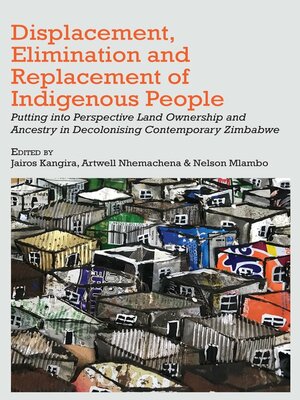Displacement, Elimination and Replacement of Indigenous People
ebook ∣ Putting into Perspective Land Ownership and Ancestry in Decolonising Contemporary Zimbabwe
By Jairos Kangira

Sign up to save your library
With an OverDrive account, you can save your favorite libraries for at-a-glance information about availability. Find out more about OverDrive accounts.
Find this title in Libby, the library reading app by OverDrive.



Search for a digital library with this title
Title found at these libraries:
| Library Name | Distance |
|---|---|
| Loading... |
Colonial scholars have taken immense pleasure in portraying Africans as possessed by spirits but as lacking possession and ownership of their resources, including land. Erroneously deemed to be thoroughly spiritually possessed but lacking senses of material possession and ownership of resources, Africans have been consistently dispossessed and displaced from the era of enslavement, through colonialism, to the neocolonial era. Delving into the historiography of dispossession and displacement on the continent of Africa, and in particular in Zimbabwe, this book also tackles contemporary forms of dispossession and displacement manifesting in the ongoing transnational corporations land grabs in Africa, wherein African peasants continue to be dispossessed and displaced. Focusing on the topical issues around dispossession and repossession of land, and the attendant displacements in contemporary Zimbabwe, the book theorises displacements from a decolonial Pan-Africanist perspective and it also unpacks various forms of displacements � corporeal, noncorporeal, cognitive, spiritual, genealogical and linguistic displacements, among others. The book is an excellent read for scholars from a variety of disciplines such as Geography, Sociology, Social Anthropology, History, Linguistics, Development Studies, Science and technology Studies, Jurisprudence and Social Theory, Law and Philosophy. The book also offers intellectual grit for policy makers and implementers, civil society organisations including activists as well as thinkers interested in decolonisation and transformation.







